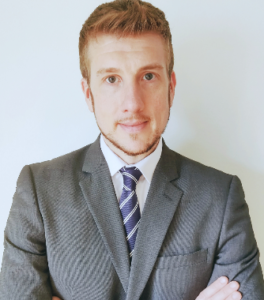
Dr. PABLO IVÁN NIKEL
Senior Researcher / Head of the Systems Environmental Microbiology Group, DTU Biosustain
SYNTHETIC BIOLOGY FOR EXPANDING THE CHEMICAL LANDSCAPE OF LIVING CELLS
ABSTRACT:
Fluorine is a key element in the synthesis of molecules broadly used in medicine, agriculture and materials. Addition of fluorine to organic structures represents a unique strategy for tuning molecular properties, yet this atom is rarely found in Nature and approaches to integrate fluorometabolites into the biochemistry of living cells are scarce. To overcome this state of affairs, we have engineered synthetic gene circuits for organofluorine biosynthesis in the platform bacterium Pseudomonas putida. By harnessing fluoride-responsive riboswitches and orthogonal RNA polymerases, biochemical reactions needed for in vivo biofluorination were are wired to the presence of fluoride (i.e. circumventing the need of feeding expensive additives). Biosynthesis of fluoronucleotides and fluorosugars in engineered P. putida is demonstrated with mineral fluoride both as the only fluorine source (i.e. as a substrate of the pathway) and as inducer of the synthetic circuit. I will also discuss how these neo-metabolism approaches expand the chemical landscape of cell factories by providing new alternative biosynthetic strategies towards fluorinated building-blocks.
BIOGRAPHY:
Pablo is a Senior Researcher at DTU Biosustain and he leads the Systems Environmental Microbiology group. He received a M.Sc. in Biotechnology (2004) and a Ph.D. in Biotechnology and Molecular Biology (2009) in Buenos Aires, Argentina. During graduate school, his research focused on repurposing two-component signal transduction systems for metabolic engineering. After receiving training in 13C-based technologies for quantitative physiology in USA (Rice University, supported by ASM), Pablo moved to Europe in 2011 as a post-doctoral fellow in Prof. de Lorenzo’s laboratory in Madrid, funded by the European Molecular Biology Organization (EMBO) and the Marie Skłodowska-Curie Actions (MSCA) of the European Commission. During this post-doctoral training, he came across the fascinating world of environmental bacteria, particularly Pseudomonas putida. Inspired by the virtually countless bioengineering possibilities offered by this bacterium, he is now leading the Systems Environmental Microbiology Group at DTU Biosustain to rewrite P. putida’s core biochemistry, implementing synthetic metabolism for novel compounds with a focus on new-to-nature chemicals. The ultimate ambition of this research programme is to expand the boundaries of microbial biochemistry—thereby accessing compounds that are exclusively produced via traditional chemistry nowadays.



